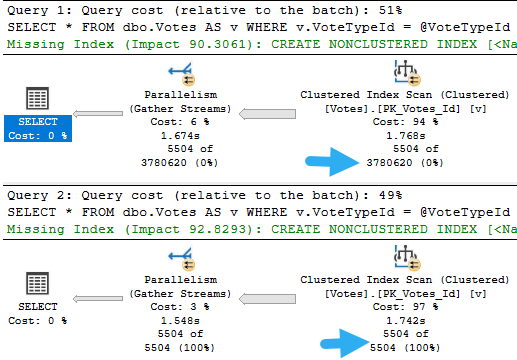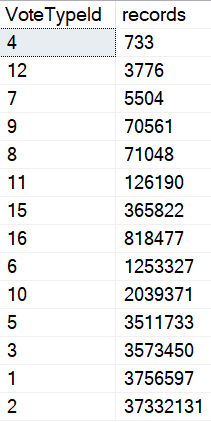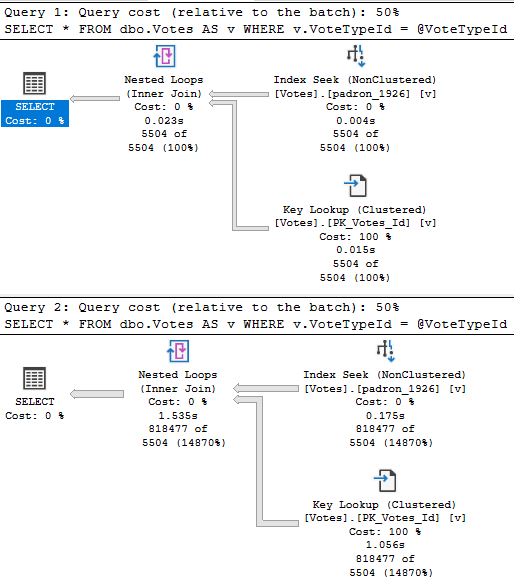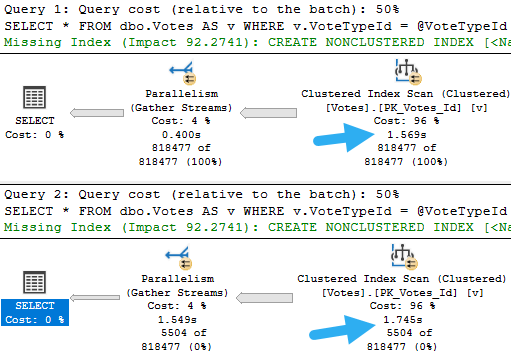Parameter Positive
There are many good reasons to parameterize a query, but there are also trade-offs. There’s no such thing as a free parameter, as they say.
In this post, we’re going to discuss what is and isn’t a parameter, and some of the pros and cons.
What’s important to keep in mind is that good indexing can help avoid many of the cons, but not all. Bad indexing, of course, causes endless problems.
There are many good reasons to parameterize your queries, too. Avoiding SQL injection is a very good reason.
But then!
What’s Not A Parameter
It can be confusing to people who are getting started with SQL Server, because parameters and variables look exactly the same.
They both start with @, and feel pretty interchangeable. They behave the same in many ways, too, except when it comes to cardinality estimation.
To generalize a bit, though, something is a parameter if it belongs to an object. An object can be an instance of:
- A stored procedure
- A function
- Dynamic SQL
Things that aren’t parameters are things that come into existence when you DECLARE them. Of course, you can pass things you declare to one of the objects above as parameters. For example, there’s a very big difference between these two blocks of code:
DECLARE @VoteTypeId INT = 7; SELECT * FROM dbo.Votes AS v WHERE v.VoteTypeId = @VoteTypeId; DECLARE @sql NVARCHAR(MAX) = N' SELECT * FROM dbo.Votes AS v WHERE v.VoteTypeId = @VoteTypeId; ' EXEC sp_executesql @sql, N'@VoteTypeId INT', @VoteTypeId;
But it’s not obvious until you look at the query plans, where the guess for the declared variable is god awful.
Then again, if you read the post I linked to up there, you already knew that. Nice how that works.
If you’re too lazy to click, I’m too lazy to repeat myself.

What’s the point? Variables, things you declare, are treated differently from parameters, things that belong to a stored procedure, function, or dynamic SQL.
Parameter Problems
The problem with parameterization is one of familiarity. It not only breeds contempt, but… sometimes data just grows apart.
Really far apart.
SELECT
v.VoteTypeId,
COUNT_BIG(*) AS records
FROM dbo.Votes AS v
GROUP BY v.VoteTypeId
ORDER BY records;

Natural Selection
When you parameterize queries, you give SQL Server permission to remember, and more importantly, to re-use.
What it re-uses is the execution plan, and what it remembers are cardinality estimates. If we do something like this, we don’t get two different execution plans, or even two different sets of guesses, even though the values that we’re feeding to each query have quite different distributions in our data.
The result is two query plans that look quite alike, but behave quite differently.

One takes 23 milliseconds. The other takes 1.5 seconds. Would anyone complain about this in real life?
Probably not, but it helps to illustrate the issue.
Leading Miss
Where this can get confusing is when you’re trying to diagnose a performance problem.
If you look in the plan cache, or in query store, you’ll see the plan that gets cached for the very first parameter. It’ll look simple and innocent, sure. But the problem is with a totally different parameter that isn’t logged anywhere.
You might also face a different problem, where the query recompiles because you restarted the server, updated stats, rebuilt indexes, or enough rows in the table changed to trigger an automatic stats update. If any of those things happen, the optimizer will wanna come up with a new plan based on whatever value goes in first.
If the roles get reversed, the plan will change, but they’ll both take the same amount of time now.
DECLARE @VoteTypeId INT; SET @VoteTypeId = 16 DECLARE @sql NVARCHAR(MAX) = N' SELECT * FROM dbo.Votes AS v WHERE v.VoteTypeId = @VoteTypeId; '; EXEC sp_executesql @sql, N'@VoteTypeId INT', @VoteTypeId; SET @VoteTypeId = 7; SET @sql = N' SELECT * FROM dbo.Votes AS v WHERE v.VoteTypeId = @VoteTypeId; '; EXEC sp_executesql @sql, N'@VoteTypeId INT', @VoteTypeId;

Deal With It ?
In the next few posts, we’ll talk about what happens when you don’t parameterize queries, and different ways to deal with parameter sniffing.
- A recompile hint can help, it might not always be appropriate depending on execution frequency and plan complexity
- Optimize for unknown hints will give you the bad variable guess we saw at the very beginning of this post
We’re going to need more clever and current ways to fix the issue. If you’re stuck on those things recompiling or unknown-ing, you’re stuck not only on bad ideas, but outdated bad ideas.
Like duck l’orange and Canadian whiskey.
Thanks for reading!
Going Further
If this is the kind of SQL Server stuff you love learning about, you’ll love my training. I’m offering a 75% discount to my blog readers if you click from here. I’m also available for consulting if you just don’t have time for that and need to solve performance problems quickly.